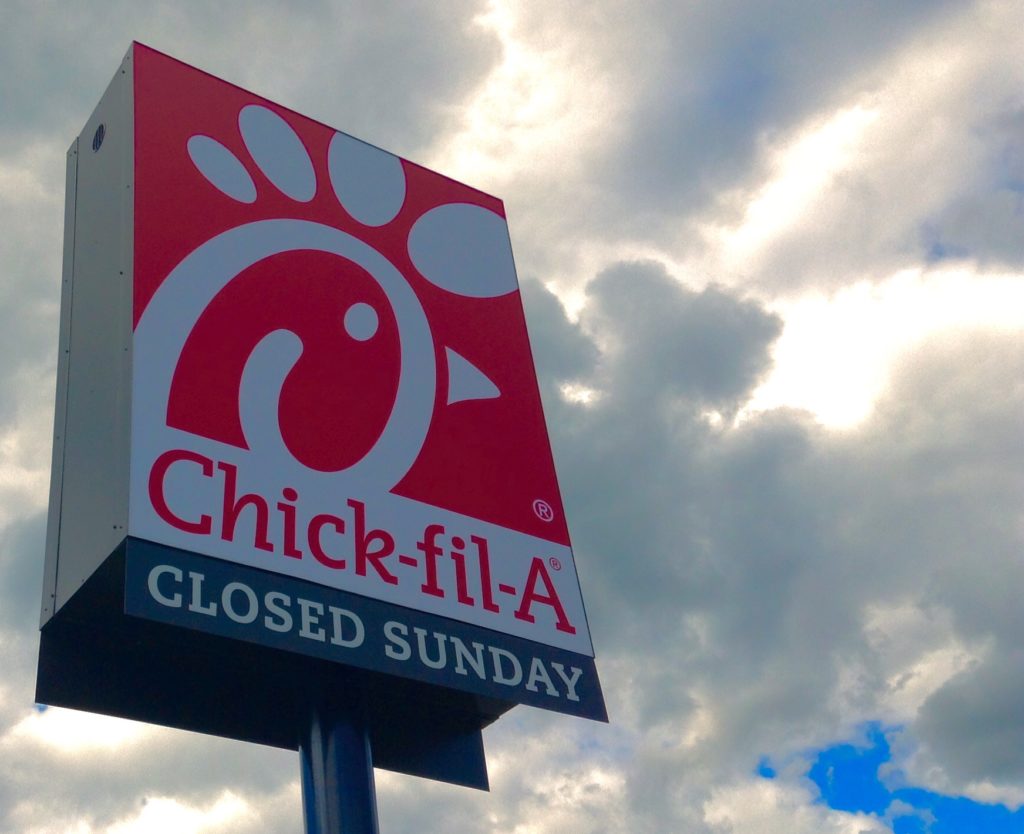Withholding is a useful differentiation strategy for some organizations. Stan Phelps, IBM Futurist and Forbes contributor writes:
Most brands are trying to be strong, and they want to get stronger. They want to be powerful. This seems to make sense. Be the best. Do more. Expand. Grow. Benchmark your competition and then offer more features, more products, more services, and more locations.
Why do less? Why withhold?
Because withholding is zigging when everyone else is zagging.
Chick-fil-A, the chicken-centric fast food chain, is infamous for being closed on Sundays (amongst other things). And while withholding wasn’t an intentional tactic when the company was founded over 70 years ago, it has been an effective one. (Chick-fil-A chooses to remain closed on Sundays in order to give employees and customers a dedicated day to spend with their families and their communities.)
Withholding is doing less of what makes you strong, less of what customers love about you. It’s about limiting customer choices, limiting decision fatigue, and creating some scarcity – whether it’s false scarcity or not.
Withholding gives you or your business a chance to build anticipation.
Withholding involves offering fewer options, fewer locations, fewer features, fewer products, fewer services, fewer hours, fewer perks, and fewer discounts. This is about deliberately and relentlessly shrinking the things that everyone else is expanding.
Oddly enough, withholding is part of a differentiation strategy: Do less of something you’re good at in order to stand out even more. When executed properly, doing less can drive even more demand.
Growing up in Texas I’ve seen this first-hand a hundred times. Someone has the brilliant idea to grab some Chick-fil-A and you race over to the location down the street, your mouth watering. Before you even turn off the road you know something is wrong. The parking lot is empty. It’s Sunday.
While Sonic took our Sunday dollars, Monday was always Chick-fil-A.
Drive-thru Takeaway: How can you withhold to bring about more demand? To differentiate? How can you integrate doing less into your positioning and strategy?
I’ll leave you with a Chick-fil-A love song:
